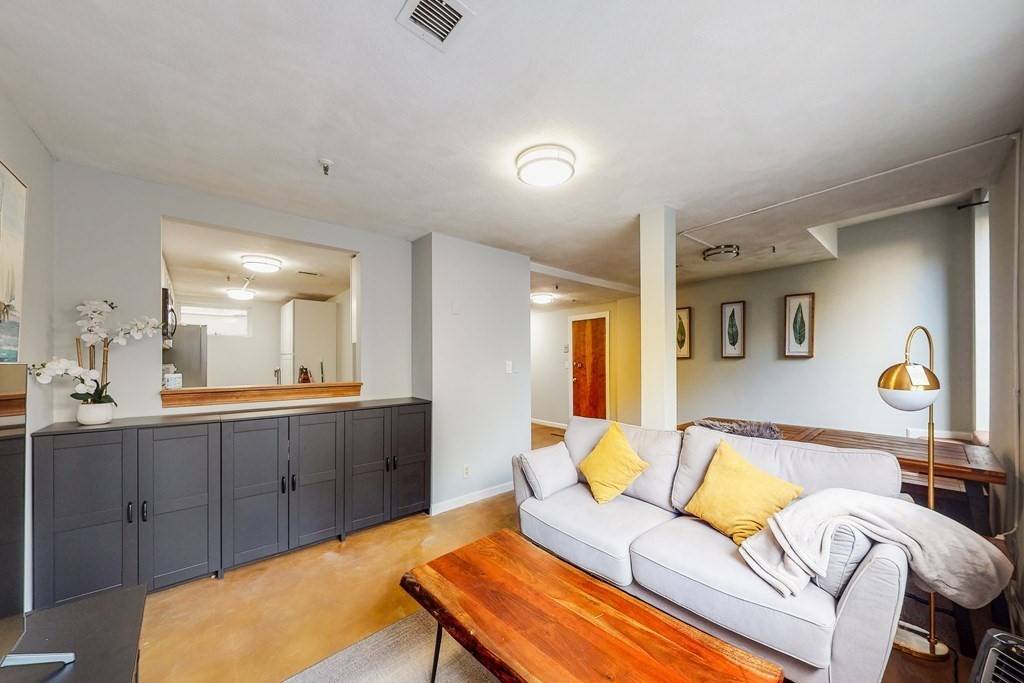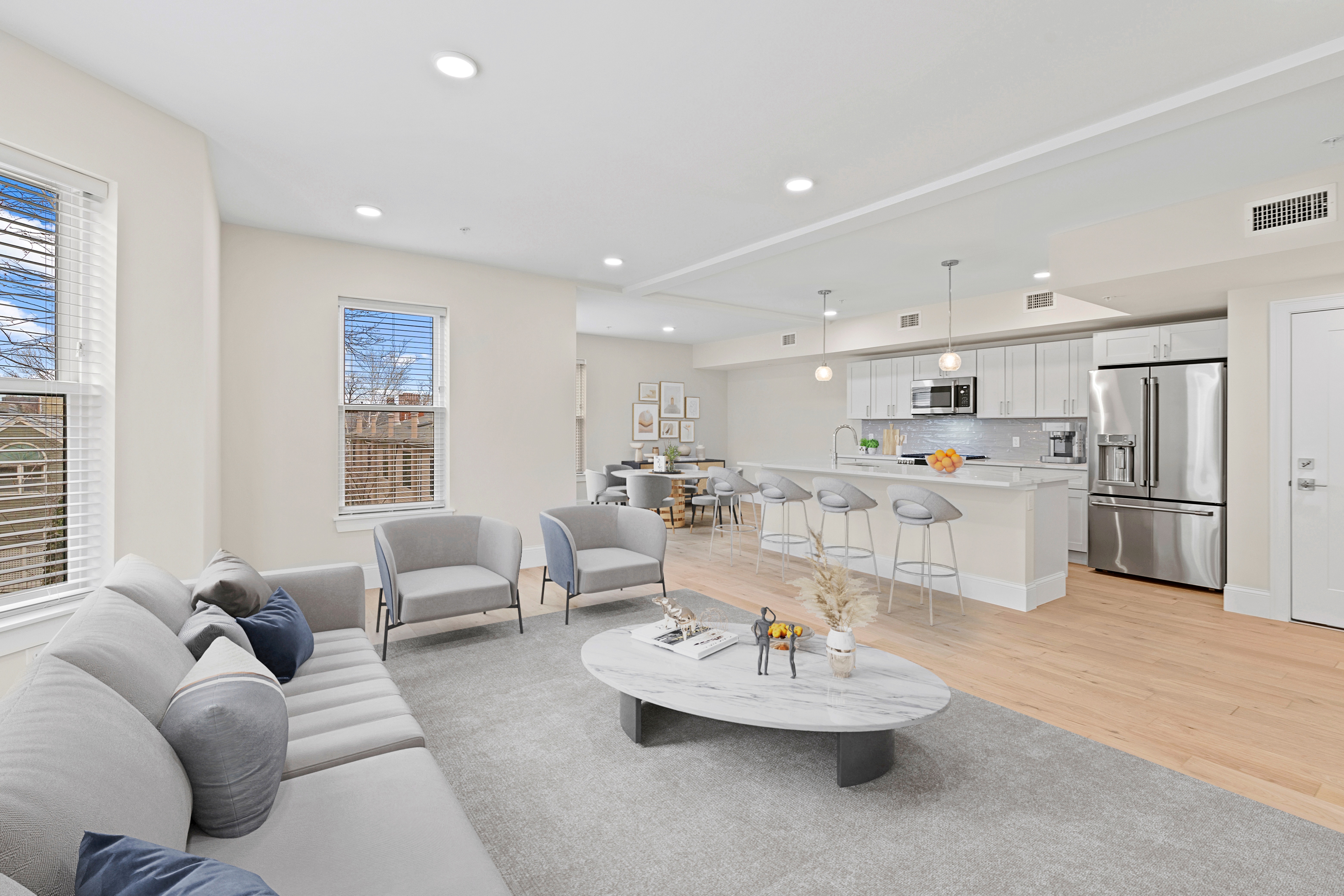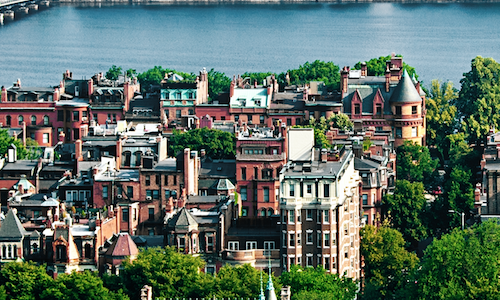Boston Housing Market: How Historical Trends Shape Modern Real Estate

Image Source: AI Generated
We've seen the Boston housing market change from a collection of historic brownstones to one of America's most vibrant real estate scenes. The sort of thing I love about our city's property market is its story of growth, adaptation, and resilience. It reflects centuries of economic and social change that still shape home values and buying patterns today.
Let us guide you through Boston's real estate world. You'll learn how past events created our current market conditions. Our world-renowned universities, healthcare institutions, and emerging technology hubs affect property values significantly. We'll get into what drives housing prices and neighborhood development in Greater Boston's most desirable areas like Back Bay, South End, and Beacon Hill.
The Evolution of Boston's Housing Landscape
Boston's housing scene has changed remarkably through the centuries. Our city's trip through time reveals thoughtful development patterns and community-led changes. The neighborhoods tell a compelling story that blends planned growth with organic development and shapes today's real estate market.
From colonial settlements to modern metropolis
Boston's housing market evolved through three distinct paths that shaped the city we know today. The residential areas expanded naturally with population growth. Much of our cherished neighborhoods like Back Bay, South End, and most of East Boston emerged from innovative land reclamation projects. Mutually beneficial alliances brought communities like Brighton, Charlestown, and Dorchester into our growing city. Hyde Park became the final piece of this expansion in 1912.
Key historical events shaping real estate development
Two major waves of public housing development altered the map of our housing scene. Public housing construction started in 1938 but World War II forced a pause. Construction started again from 1949 to 1954. The focus changed from helping individual families to building stronger communities and stopping neighborhoods from declining.
Several development phases created today's market:
-
Creation of the first railroad suburbs in the 1830s
-
Introduction of electric streetcars in 1889
-
Establishment of the Metropolitan Park Commission in 1893
-
Implementation of the 1948 State Highway Master Plan
Transformation of neighborhoods over time
Our communities have experienced remarkable demographic changes over the years. The period between 1964 and 1970 stands out as a pivotal moment when six major public housing developments transformed from 80% white occupancy to 70% black occupancy. Community activism flourished during this time and led to the creation of Community Development Corporations (CDCs). These organizations still provide affordable housing and essential community services.
The region's progress has created new possibilities alongside significant challenges. Our neighborhoods have grown more affluent and ethnically diverse from 1990 to 2016, though many residents struggle as housing costs have outpaced income growth. The current emphasis on transit-oriented development and smart growth initiatives connects us back to our roots, reflecting the development patterns that shaped our historic railroad and streetcar suburbs.
Economic Factors Influencing Boston's Real Estate
The remarkable economic growth has altered the map of Boston housing market. The city's evolution continues to shape our living choices and residential patterns today.
Change from industrial to knowledge-based economy
Massachusetts has emerged as a global leader in the knowledge economy in the last two decades. This economic change created new opportunities and reshaped our housing landscape. Greater Boston stands as the main engine of our state's economy, with its influence growing stronger than it was 30 years ago. The city's economic output reached an impressive $168.20 billion in 2022, showing a strong 4.8% growth compared to the previous year.
How universities and healthcare institutions affect housing
Boston's educational institutions shape the city's real estate landscape. Student enrollment reached 163,000 in Boston-based programs by fall 2023. These students affect housing costs and availability by a lot. The private housing market shows 16,900 residential properties occupied by students. Neighborhoods with high student populations see rental prices climb by about $200 compared to areas where fewer students live.
Role of finance and technology sectors
Boston's rise as a tech and financial hub continues to revolutionize housing. Key economic indicators show:
-
Information and Professional Services sectors contributed to 30% of Boston's real economic output in 2022
-
Finance and Insurance managed to keep a strong 19% share of the city's output
-
Healthcare and Social Assistance sectors remain major employers, adding 2,649 jobs in 2023
These high-paying sectors have intensified housing just needs and affected our rental market significantly. Boston now ranks as the fourth-most-expensive city for apartment rentals. A median one-bedroom apartment costs $2,800 monthly. This economic success drives overall growth but creates challenges for housing affordability in our communities.
Analysis of Current Market Conditions
Let's take a closer look at what's happening right now in our vibrant Boston housing market. The current trends show notable changes that affect both buyers and sellers in our community.
Supply and demand dynamics
Boston's housing market shows promising signs of growth. The city's real estate inventory reached 2,112 homes in October 2024, with a solid 9.7% increase from September. Our local market remains active as homes stay listed for about 40 days on average. Buyers show strong interest in available properties, and 65% of homes find new owners within their first 30 days on the market.
Price trends in property types
Boston's real estate market remains strong with steady property values. The median home price reached $815,961 in October 2024. Properties of all types show different appreciation rates:
-
Single-family homes hit a new peak with a median price of $950,000 in April 2024
-
Condominium prices settled at $700,000
-
Luxury properties valued above $2 million recorded 386 closed sales in the last year
Rental market overview
The rental market shows fascinating patterns as prices vary substantially between neighborhoods. Cambridge guides the pack as our most expensive area with one-bedroom apartments averaging $2,950. Manchester provides more affordable options at $1,650. The Massachusetts one-bedroom median rent stands at $2,209, which showcases our market's diversity.
Our rental scene has transformed dramatically. Worcester stands out as our fastest-growing rental market with a 22% year-over-year increase. Salem and Chelsea have shown impressive growth too, with increases of 10.1% and 10% respectively.
Demographic Shifts and Their Impact
Boston's neighborhoods continue to evolve with fresh energy reshaping our housing scene. Our growing city welcomes new residents daily and these demographic changes create interesting patterns in the real estate market.
Changing population composition
Boston's vibrant community keeps expanding. The city now has 690,000 residents, and the Greater Boston area houses more than 4.9 million people. The city shows an impressive 3.1% annual growth rate that transforms our neighborhoods. Future projections paint an exciting picture of growth - our population should reach 724,000 by 2030 and 801,000 by 2050.
Millennial and empty-nester priorities
Housing choices reveal fascinating generational shifts. Empty-nester neighbors now leave their suburban homes behind for urban living experiences. These homeowners make unconventional moves from 12,000-square-foot single-family residences to 5,000-square-foot condos. New construction and move-in ready properties attract them more than renovation projects. Luxury properties in downtown developments have become their prime focus.
Immigration and its effect on housing demand
Immigration plays a key role in our housing market's health. Our city welcomed 55,000 new residents through immigration between 2010 and 2013. Boston and Massachusetts would have seen their population drop without these newcomers. Our immigrant community has changed by a lot. Most new residents now come from Latin America and Asia instead of Europe. This change brings amazing diversity to our neighborhoods and continues to boost housing demand of all types.
These demographic changes affect our housing market in important ways. We see this especially in:
-
Luxury condominium development in downtown areas
-
Transit-oriented housing near major transportation hubs
We plan to handle these demographic changes through careful development. Our city has made a commitment to build 53,000 new housing units. This will help us welcome our growing and diverse population while our neighborhoods keep their special character.
Conclusion
Boston's remarkable experience from colonial settlement to modern metropolis shows how resilient and adaptable our real estate market truly is. Our city has managed to keep its historic charm through centuries of thoughtful development. We see a unique blend of old and new that draws residents from all walks of life. Today's market strength speaks volumes, with median home prices at $815,961 and steady growth in properties of all types. Boston stands proud as a prime destination for homebuyers and investors alike.
Bright prospects lie ahead for Boston's housing market. Our city draws its strength from world-class educational institutions, a thriving healthcare sector, and a booming technology industry. Neighborhood development and housing trends reflect our diverse community's needs - from millennials seeking urban excitement to empty-nesters embracing city life. Strong economic foundations and demographic changes position Boston's real estate market for sustained growth. Yet our city retains that special character that makes it unique.
Categories
Recent Posts










